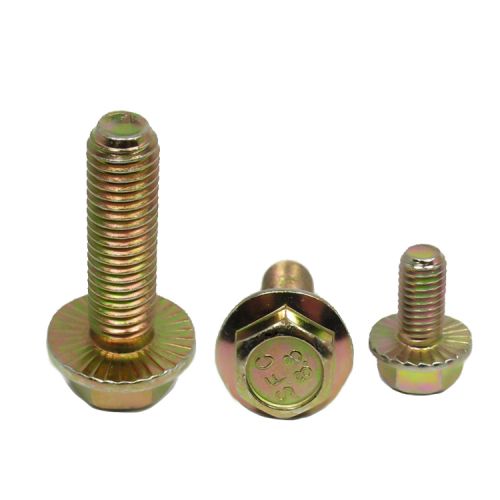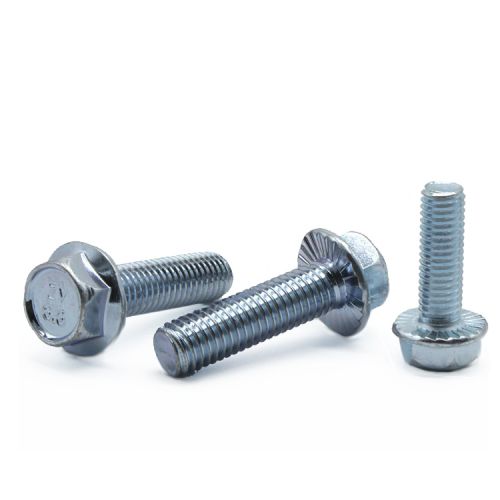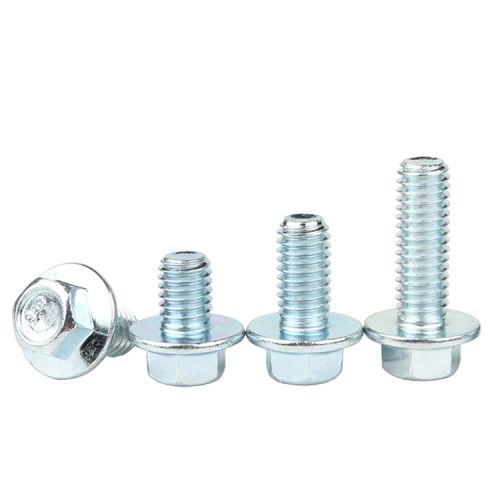

When it comes to fastening systems, bolts play a critical role in ensuring structural stability across various applications. Two commonly used types are hexagon head flange bolts and regular bolts. Though both are essential fasteners, they differ in design, application, and benefits. Understanding these differences can help in selecting the right bolt for your project.

A hexagon head flange bolt combines two key components in one: a hexagonal head and an integrated flange at the base of the head. This flange acts like a built-in washer, distributing pressure more evenly when the bolt is tightened. Here’s a closer look at the specific features:
Integrated Flange: The most distinct characteristic of the hexagon head flange bolt is the built-in flange, which eliminates the need for a separate washer. This flange provides a larger surface area that distributes the load more evenly, reducing the risk of damage to the material being fastened.
Hexagonal Head: The six-sided head allows for easy tightening using a wrench or socket tool. This is common across both hexagon head flange bolts and regular hex bolts.
Greater Load Distribution: Due to the wider surface area provided by the flange, the load is spread out more evenly. This helps prevent the material from deforming under high pressure, making it a superior choice for applications where stability is critical.
Ease of Installation: With the washer built into the bolt, hexagon head flange bolts are quicker to install, reducing the time spent on securing multiple components in place.

In contrast, a regular bolt typically lacks an integrated flange and may require additional washers to properly distribute the load. These bolts come in various head types, including hexagonal heads, and are widely used across many industries for general-purpose fastening.
Separate Washer Required: Regular bolts typically require the use of a separate washer to achieve proper load distribution and to prevent the bolt head from damaging the material.
Versatility: Regular bolts come in a variety of sizes, head styles, and thread types, making them highly versatile for various applications. However, they may not offer the same ease of installation as flange bolts.
Basic Load Distribution: Without a built-in flange, regular bolts distribute load over a smaller surface area. This makes them more suitable for applications where the load and pressure on the material are not as high.
The choice between a hexagon head flange bolt and a regular bolt comes down to the specific application.
Hexagon head flange bolts are ideal for high-stress applications where additional load distribution is needed, such as in automotive, heavy machinery, and construction industries. Their integrated flange ensures even pressure across the material, reducing the likelihood of loosening over time.
Regular bolts are more versatile and used in general-purpose applications. However, they may require additional components like washers to achieve the same level of load distribution as a flange bolt.

Improved Load Distribution: The built-in flange ensures that the load is spread evenly, making hexagon head flange bolts particularly suitable for heavy-duty applications.
Faster Installation: The integrated flange eliminates the need for a separate washer, speeding up the installation process and reducing the number of components needed.
Enhanced Durability: By preventing concentrated stress on the material, flange bolts offer better long-term durability, reducing the need for maintenance or replacement over time.
When deciding between a hexagon head flange bolt and a regular bolt, consider the specific needs of your project. If you’re working on an application that requires higher stability, even load distribution, and ease of installation, the hexagon head flange bolt is likely the better option. For general-purpose use, a regular bolt might be sufficient, but you’ll need to account for the additional time and cost of separate washers.
At SWH Hardware, we offer a wide range of hexagon head flange bolts for various industrial and construction applications. Our bolts are made from high-quality materials, ensuring strength and durability. Explore our full selection on our website at SWH Hardware, where you can find the best hardware solutions for your next project.